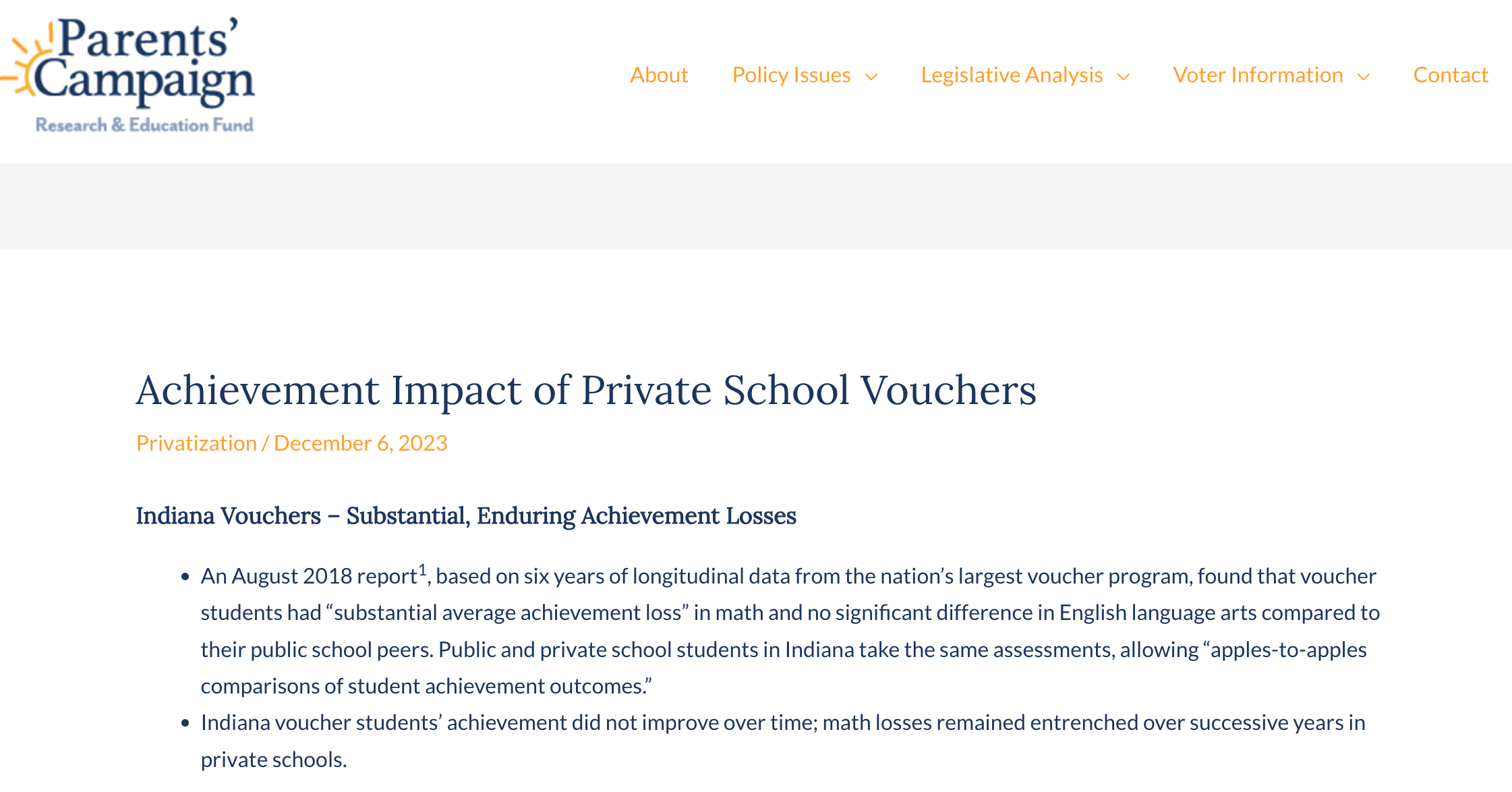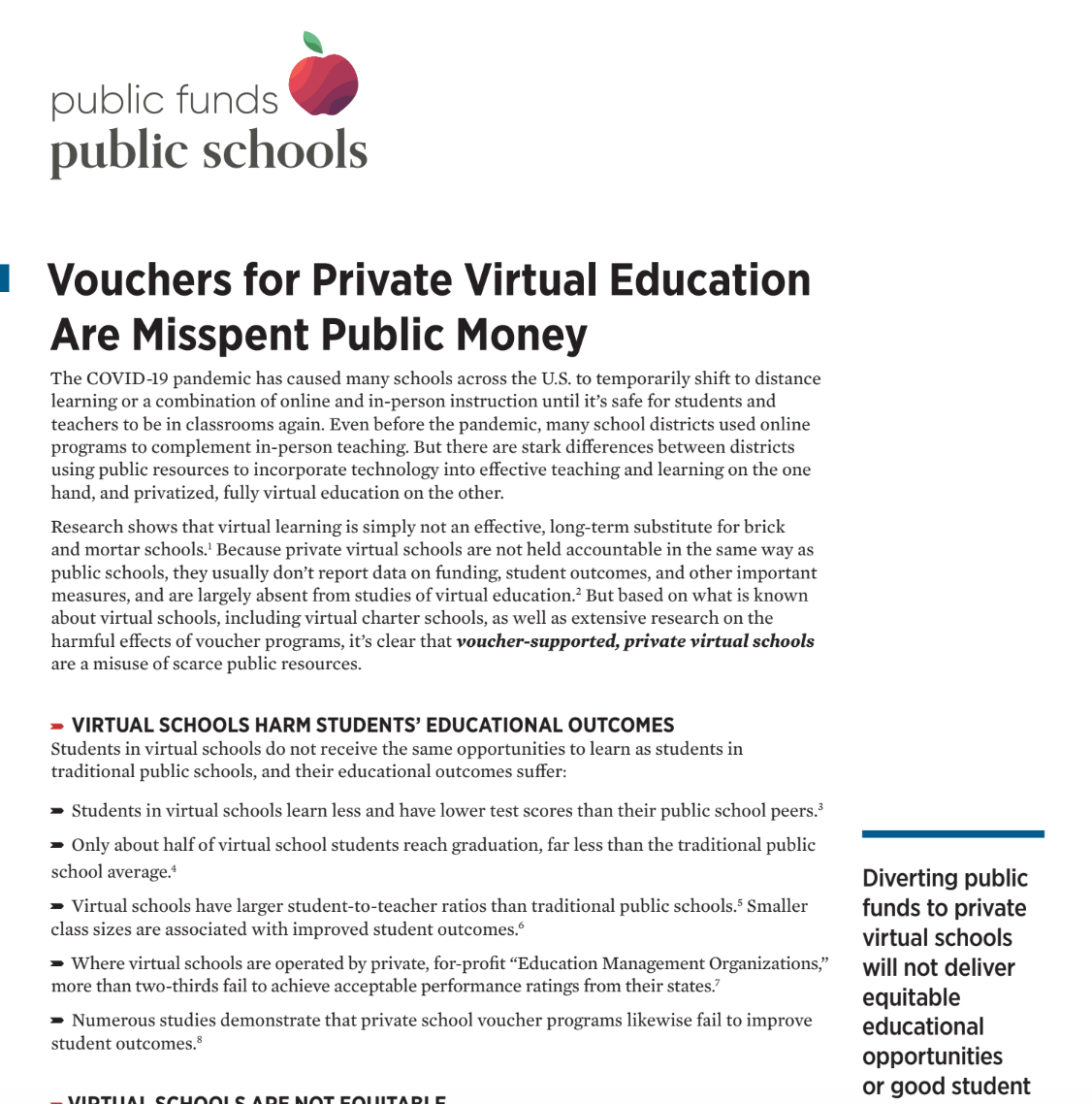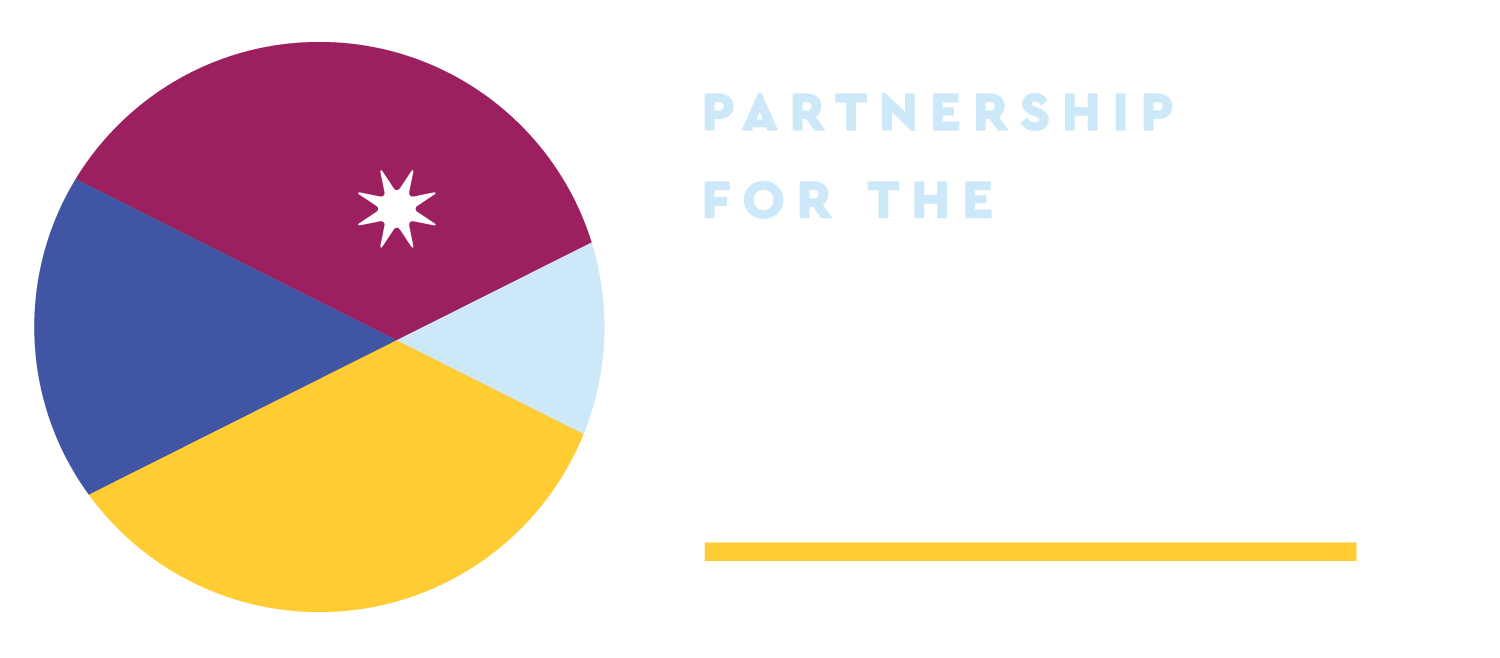ALL RESOURCES
FILTER BY TAG
Select a tag
- Academic performance
- Accessibility
- Accountability
- Advocacy
- Advocates
- Article
- Bill analysis
- Bill tracker
- Billionaires
- Blog post
- Civil rights
- Coalition building
- Community Schools
- Cost impact analysis
- Dark Money
- Data
- Disability
- Discrimination
- Drain funds from public education
- Education Savings Account (ESA)
- English language learners
- Fact sheet
- Fraud Waste and Abuse
- Graphic
- History
- Indigenous and Native Education
- Integration
- LGBTQ+
- Legislation
- Letter
- Litigation
- Messaging or talking points
- Model legislation
- National Voucher
- News
- Parents
- Personal narrative
- Podcast
- Policy brief
- Policymakers
- Radio
- Referendum
- Religion
- Report
- Rural communities
- Segregation
- Separation of church and state
- Slide deck
- Slides
- State Constitutional Right to Education
FILTER BY AUTHOR
Select an author
- Aaron Sanderford
- Alec MacGillis
- Allen Pratt
- Associated Press
- Bob Peterson
- Bruce Schreiner
- Catherine Caruso
- David Montgomery
- David Pepper
- Eli Hager
- Emily Walkenhorst
- Ethan Dewitt
- Geoff Mulvihill
- Hilary Wething
- Howard Fischer
- Jason Bailey
- Jessica Corbett
- Jim Collier
- Joe Dana
- Joshua Cowen
- Juan Perez Jr.
- Kiera Butler
- Laura Pappano
- Liam Amick
- Maurice Cunnningham
- Nora De La Cour
- Paige Masten
- Patrick Darrington
- Paul Hammel
- Phil Williams
- Rob Boston
- Robert Huber
- Rowan Moore Geretsy
- Sasha Pudelski

Inequity in School Funding
This report from the Education Law Center and the Southern Poverty Law Center illustrates that while southern states are failing to adequately fund their public schools, almost all of them are funneling scarce education funding to private schools through voucher programs and otherwise engaging in “culture wars” that seek to undermine public education.

The Myths of Cost Savings from Private School Vouchers
The notion that it costs less to educate students with publicly funded private school vouchers than it does to educate them in traditional public schools ignores important realities that make voucher programs expensive, impractical and unsound.

Tell NC Lawmakers: Time to Deliver the Funding Our Children are Owed!
While the Leandro plan remains unfunded, legislators are proposing another round of income tax cuts for the wealthy and a massive expansion of the current private school voucher programs. These programs will disproportionately benefit wealthy families while hampering opportunities for families living in poverty.

Say No to School Vouchers
The opportunity to access a high-quality public education is foundational to the American promise of liberty and opportunity for all—a promise protected by the constitution of every state to educate young learners. School vouchers, in practice, mainly subsidize private school tuition for affluent families in or near urban areas. Private schools that accept school vouchers often restrict access to students based on ability status, religion, or personal characteristics such as style of hair. When used for school privatization, public funds primarily function as an unregulated benefit for wealthy families on the taxpayer’s dime. Instead of spending valuable time and resources on voucher programs, states should invest in strengthening the public education system with research-based strategies that improve students’ content mastery and whole-child outcomes.

NEPC Review: Qualified Education Expense Tax Credit: Economic Analysis (Georgia Department of Audits and Accounts, June 2023)
A recent report from the Georgia Department of Audits and Accounts examines the monetary costs and benefits of the state’s Qualified Education Expense Tax Credit (QEEC). The QEEC is a type of voucher policy that provides a public subsidy for families to pay for private school tuition. Data show the tax credit results in $81 million of forgone state tax revenue per year. The report argues the QEEC provides a net fiscal benefit for Georgia’s state budget based on an estimate that the vouchers cause almost 20,000 students per year to choose private schools instead of public, thus removing the cost of educating those students from state and local budgets. However, because the report relies on unrealistic assumptions, its suggestion that program benefits outweigh costs is tenuous and risks misleading state education leaders. Instead, state leaders should invest educational dollars in policies that have a positive return on in- vestment and therefore help, rather than harm, state and local budgets.

The Invest in Kids Program Must End Public Dollars, No Public Oversight
This Illinois Families for Public Schools fact sheet depicts how the Illinois Invest in Kids voucher program is characterized by discriminatory revenue, low academic quality, and compulsory child labor.

What we don’t know about Illinois’ Invest in Kids voucher program
Lack of transparency and oversight for how public dollars are being spent is a fundamental flaw of school voucher programs. The Illinois Invest in Kids program is halfway through its fifth school year, and there is still a lot we don’t know about schools and students receiving vouchers. Public access to that data from state agencies is limited.

Signs of fraud raise major red flags about expanding NC school vouchers
This op-ed by Kris Nordstrom calls out that many private schools in North Carolina have been awarded more vouchers than they have students. Yet shoddy financial oversight and potential fraud aren’t the only reasons why vouchers are a bad idea for North Carolina. The new data is just the latest evidence that voucher expansion is a mistake. The only question that remains is whether voucher proponents will bother trying to justify this reckless agenda.

Voucher Talking Points
This talking points document from the North Carolina Justice Center includes general talking points on the impact of school voucher programs and specific points in response to 2023 voucher legislation.

PEER Review of Vouchers: Fraud, Lack of Accountability; Unspent Funds
Mississippi’s PEER* Committee issues a report of the state’s ESA voucher program, which uses public funds to pay private school tuition for children with special needs.

Accountability and Private School Choice
The report Accountability and Private-School Choice, released by the Manhattan Institute in October, 2021, addresses the question of how private school voucher programs should be regulated. That is, if private schools are to receive public funds, what accountability mech- anisms can fairly and reasonably safeguard taxpayer dollars? The report advocates for re- laxing accountability mechanisms that presently constrain some voucher programs, assert- ing that “more and better” private schools will participate in response, benefitting students academically. Such claims, however, are supported by a selective reading and intentional misreading of educational research. Insofar as that is the case, the report merely repeats well-worn ideological positions and neither advances what we know about the challenge of regulating private schools nor offers useful information for policy decisions.

Florida Department of Education Data Request
This letter from the Florida Policy Institute and partners calls on the Florida Department of Education (FLDOE) and its scholarship funding organizations (SFOs), Step Up For Students and AAA Scholarship Foundation, to provide more information on students who have applied and been approved for Florida’s Tax Credit (FTC) Scholarships, Family Empowerment Scholarships – Educational Options (FES-EO), and Family Empowerment Scholarships for students with Unique Abilities (FES-UA).

Public Dollars for Private Schools: 6 Recommendations for North Carolina’s School Voucher Program
In this policy brief the Public School Forum of North Carolina provides six recommendations for North Carolina’s Opportunity Scholarship school voucher program. The Opportunity Scholarships program in its current or expanded form represents significant investment of taxpayer dollars to support private and parochial schools. Similar to public schools and public charter schools, private schools that receive public dollars must be held accountable to the taxpayers who fund them. Additionally, parents must have access to accurate and reliable information when making school choice decisions, and state leaders must have the data needed to effectively evaluate how private schools receiving public funds are performing and to ensure that all children are receiving a sound basic education.

School Choice: Myth vs. Truth
The Parents’ Campaign Research and Education Fund provides a myth vs. truth about the impact of school voucher programs.

Achievement Impact of Private School Vouchers
The Parents’ Campaign Research and Education Fund provides a state by state snapshot on voucher programs impact on student achievement.

What Do We Know About Voucher Schools
This National Education Association fact sheet sheds some light on Milwaukee’s school voucher programs. The research shows voucher schools are smaller than non-voucher private schools. They’re often financially distressed schools with high failure rates, and lower initial school quality indicators. A substantial portion of voucher schools are start-ups that did not exist before taxpayer support.

Vouchers for Private Virtual Education Are Misspent Public Money
Research shows that virtual learning is simply not an effective, long-term substitute for brick and mortar schools.1 Because private virtual schools are not held accountable in the same way as public schools, they usually don’t report data on funding, student outcomes, and other important measures, and are largely absent from studies of virtual education. But based on what is known about virtual schools, including virtual charter schools, as well as extensive research on the harmful effects of voucher programs, it’s clear that voucher-supported, private virtual schools are a misuse of scarce public resources.

How School Voucher Programs Hurt Students
In recent months, state legislatures across the country have broadened efforts to subsidize private school tuition with taxpayer dollars. New proposals for these programs—collectively called school vouchers—have appeared in more than a dozen states and passed as major priorities for Republican governors like Kim Reynolds in Iowa and Sarah Huckabee Sanders in Arkansas. Since 2021, Arizona, Florida, Utah and West Virginia have also created or expanded voucher plans. Meanwhile, a handful states like Indiana, Louisiana, Ohio and Wisconsin have run voucher programs for years. But do school vouchers actually work? We need to focus on what research shows, and what that means for kids moving forward.

The State of Education Savings Account Programs in the United States
Education Savings Accounts are a new form of private school choice and are arguably the most strongly promoted approach by voucher advocates. This policy brief examines the emerging policy, considering how it mirrors and differs from conventional voucher ap- proaches and examining the legal issues that it raises.

Mississippi Voucher ESA Program
The Equal Opportunity for Students with Special Needs Act became law in 2015, establishing Education Scholarship Accounts (ESA) vouchers. The ESA voucher program allows Mississippi parents to use state funds to pay private school tuition for children with special needs. Initially, eligibility was limited to students who had an active IEP within the past 18 months; it was later expanded to students who had an active IEP within the past five years. The Legislature’s Performance Evaluation and Expenditure Review (PEER) Committee issued a highly critical report on the program in December of 2018.
